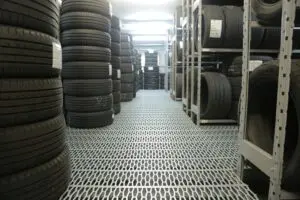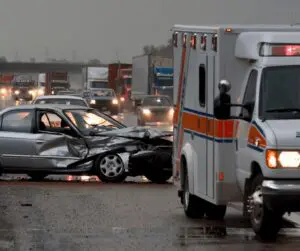What is Negligence?
Negligence is the failure to use a reasonable degree of care given the circumstances. The four elements of negligence are a duty owed to a plaintiff, a breach of that duty by the defendant, proximate cause, and injury or damage suffered by the plaintiff. It is essentially carelessness.
According to Black’s Law Dictionary, negligence is defined as “the failure to exercise the standard of care that a reasonably prudent person would have exercised in a similar situation.” As such, negligence refers to a failure to exercise the level of care that a reasonably prudent person would exercise in similar circumstances. It forms the basis of many personal injury claims and lawsuits, where a plaintiff alleges that their injuries or damages were caused by the negligent actions or omissions of another party.
Key elements of negligence include:
- Duty of care: The legal obligation of an individual or entity to exercise reasonable care to avoid causing harm to others. This duty may arise from professional relationships, ownership of property, or other circumstances.
- Breach of duty: A failure to fulfill the duty of care by acting or failing to act in a way that deviates from what a reasonably prudent person would do.
- Causation: The link between the defendant’s breach of duty and the plaintiff’s injuries or damages. It must be shown that the defendant’s actions or omissions directly caused harm to the plaintiff.
- Damages: Actual harm or losses suffered by the plaintiff as a result of the defendant’s negligent conduct, which may include physical injuries, emotional distress, property damage, or financial losses.
Legal principles related to negligence aim to compensate injured parties for their losses and encourage individuals and businesses to act responsibly to prevent foreseeable harm. For example, if your landlord doesn’t fix a rickety set of steps you let him to, and you fall through the steps a week later, the landlord is negligent in his duty of care. Understanding the elements of negligence is essential in personal injury cases and other legal disputes where liability is based on the failure to exercise reasonable care under specific circumstance
More information about Negligence
Pittsburgh Truck Accident Lawyers
When an 80,000-pound commercial truck crashes into your car on Pittsburgh’s busy highways, your life can change in seconds.
At Munley Law, we’ve guided hundreds of truck crashes victims in Allegheny County through the aftermath of these devastating crashes since 1959, securing multi-million dollar verdicts against negligent trucking companies. Our truck accident lawyers aren’t just personal injury attorneys – we’re recognized national leaders in truck litigation.
We’ve fought and won cases against every major trucking company in America, served on the boards of national trucking safety organizations, and helped shape the laws that protect Pennsylvania drivers from dangerous trucking practices.
While other law firms occasionally handle truck accidents, it’s our specialty. We understand the complex federal regulations governing the trucking industry, know how to prevent evidence spoliation within the critical 72-hour window after a crash and have a nationwide network of reconstructionists and industry professionals ready to investigate your case. […]
Read MoreMore information about Negligence
What Are the Tire Requirements for Commercial Trucks?
Truck tires play a vital role in a commercial vehicle’s safety, directly impacting braking, steering, and driving performance. However, over time, tires can wear down and become hazardous, putting everyone on the road at risk. Commercial truck drivers and owners must comply with strict tire regulations to ensure safety. If you’ve been involved in a truck accident where tire failure was a factor, it’s essential to understand how tire maintenance and safety standards may have been violated. 
Federal Commercial Truck Tire Safety Standards
Federal Commercial Truck Tire Safety Standards are in place to prevent accidents caused by tire failures. These regulations include minimum tread depth requirements to ensure proper traction, tire pressure monitoring rules to avoid under-inflation, and specific regulations for steer axle tires to provide stability.
Additionally, retread tires must meet strict safety guidelines to reduce the risk of blowouts. […]
Read MoreMore information about Negligence
Signs That a Patient Is Being Neglected in a Nursing Home
Nursing homes are tasked with keeping our loved ones safe, happy, and healthy. Unfortunately, nursing home neglect and abuse can and do happen.
You need to be on the lookout for signs of neglect (which can include emotional neglect) when visiting someone in a nursing home. You may have legal options if your loved one has been a victim of abuse or mistreatment at the hands of staff members. Contact our team at Munley Law for a free consultation on nursing home neglect and abuse cases.
Physical Signs of Nursing Home Neglect
Many signs of nursing home neglect manifest in someone’s physical condition. Consider these examples:
- Unexplained weight loss: Significant weight loss could indicate a nursing home resident isn’t being fed properly.
- Dehydration symptoms: Warning signs of dehydration in nursing home residents include confusion, […]
More information about Negligence
What Age Can a Child Ride on the Back of a Motorcycle in PA?
Is there a motorcycle passenger age limit in Pennsylvania? You may have questions about the minimum age for motorcycle passengers in the Commonwealth if you’ve been thinking about taking your child on the back of your bike.
Pennsylvania’s motorcycle laws have little to say about the minimum legal age of motorcycle passengers. However, they address other critical safety issues.
At Munley Law, serving the area since 1959, we know obeying the law can’t always prevent harm. If you or your child has been hurt in a motorcycle accident, contact our Motorcycle accident lawyer in Philadelphia, Scranton and Allentown for a free consultation.
Pennsylvania Law on Child Motorcycle Passengers
 The Pennsylvania law addressing motorcycle passenger safety doesn’t establish a minimum age for passengers. This isn’t uncommon. Most states don’t have laws prohibiting motorcyclists from riding with child passengers as long as they abide by other applicable safety requirements. […]
The Pennsylvania law addressing motorcycle passenger safety doesn’t establish a minimum age for passengers. This isn’t uncommon. Most states don’t have laws prohibiting motorcyclists from riding with child passengers as long as they abide by other applicable safety requirements. […]
More information about Negligence
Can You Sue a Car Manufacturer for a Car Crash?
If you’ve been involved in a car accident caused by a defective vehicle, you may be wondering if you can hold the manufacturer accountable. Product liability laws provide a legal pathway to pursue the compensation you deserve if the accident resulted from a defect in the vehicle’s design or manufacturing or failure to provide adequate warnings.
 These cases can be complex, requiring thorough investigation and evidence to prove the manufacturer’s fault. Whether the defect involves faulty airbags, malfunctioning brakes, or a design flaw, understanding your legal options is essential. Speak with an experienced auto defect attorney at Munley Law to determine if you have a valid claim and explore your right to compensation.
These cases can be complex, requiring thorough investigation and evidence to prove the manufacturer’s fault. Whether the defect involves faulty airbags, malfunctioning brakes, or a design flaw, understanding your legal options is essential. Speak with an experienced auto defect attorney at Munley Law to determine if you have a valid claim and explore your right to compensation.
Product Liability in Automotive Accidents
Manufacturer defects can cause automotive accidents. When that happens, the manufacturer may be held liable. Product liability claims allow individuals to seek compensation for injuries caused by such defects. […]
Read More








